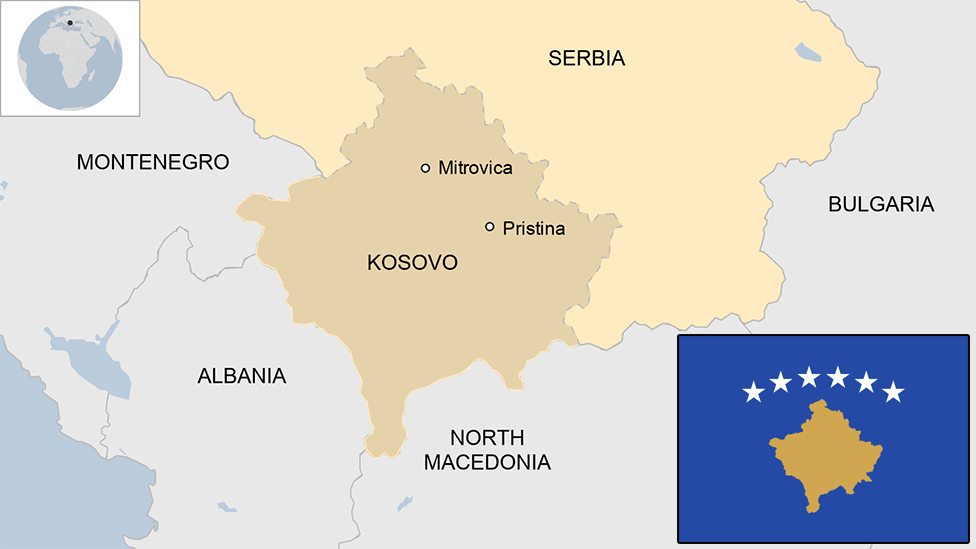Kosovo parliament approves special war crimes court
- Published
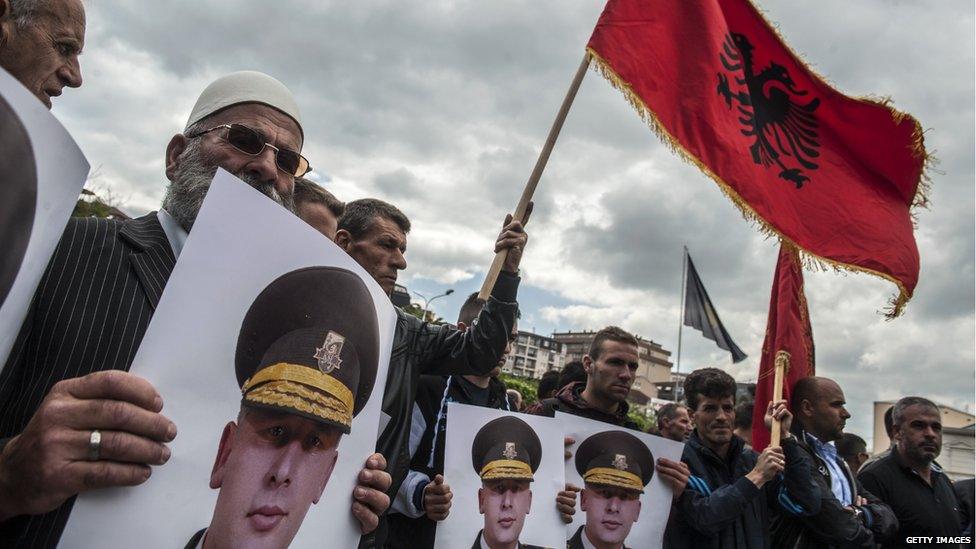
Some Kosovo Albanians, who hold former KLA commanders in high regard, have protested against the new court
Parliament in Kosovo has amended the constitution to allow the creation of a special court to investigate alleged war crimes committed by ethnic Albanian fighters during the war in the 1990s.
The now-disbanded Kosovo Liberation Army (KLA) has been accused of various war crimes, including organ-harvesting from murdered Serb captives.
Opposition politicians boycotted the vote on the establishment of a court.
But the prime minister said the issue was a "challenge we have to deal with".
The United States and the European Union have pressed Kosovo to address the accusations.
'Finding the truth'
The constitutional changes were backed by 82 deputies in the 120-seat parliament on Monday.
Former KLA rebels who have become politicians were among those in parliament who opposed the vote. Ex-KLA fighters are held in high regard by many in Kosovo's majority Albanian population.
But PM Isa Mustaf told legislators before the vote: "Finding the truth about some allegations from during and after the war is a challenge that we have to deal with."
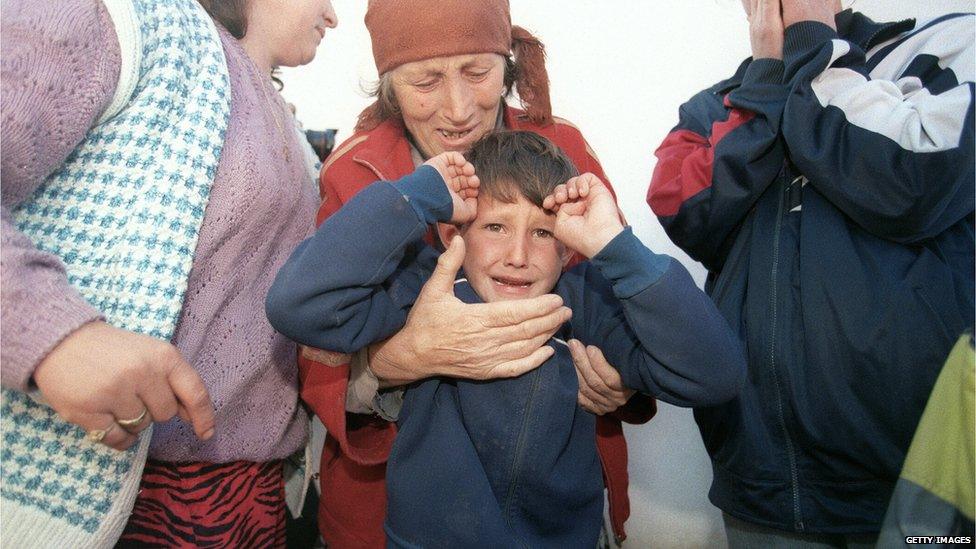
This 1998 photograph show Kosovo Albanians civilians who were driven from their homes after Serb forces launched a crackdown on rebels
In May EU judges in Kosovo convicted 11 former Kosovo Albanian guerrillas over their role in the conflict. Among those sentenced to prison was Sylejman Selimi, Kosovo's ambassador to neighbouring Albania.
The new tribunal will be part of Kosovo's judicial system, but proceedings will be handled abroad, with reports they may be held in the Netherlands.
Kosovo's ethnic Albanian majority fought an insurgency against Serb forces in the late 1990s, in which more than 10,000 people were killed and hundreds of thousands driven from their homes.
Nato bombed Serb positions to halt the persecution of civilians and, in June 1999, Kosovo was placed under UN administration.
Kosovo formally declared independence from Serbia in 2008, a move that was opposed by Belgrade. The international community is split over recognition.
- Published29 July 2014
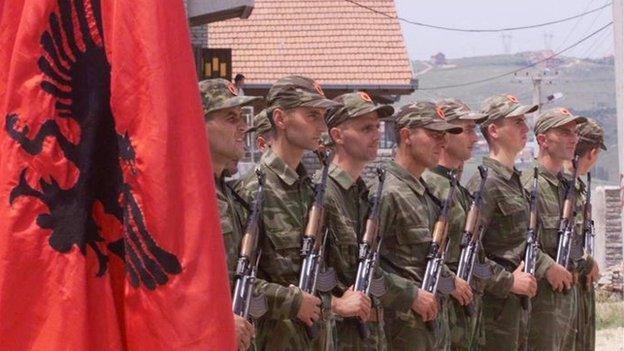
- Published18 June 2015
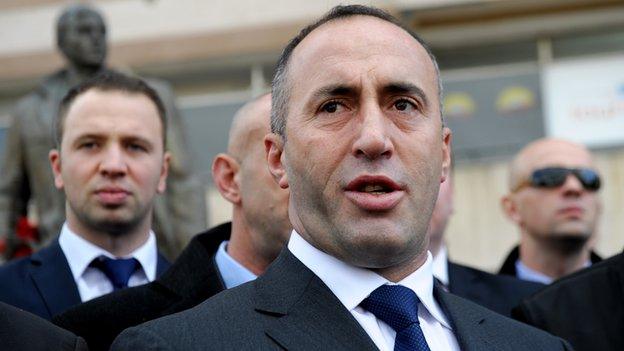
- Published8 November 2013
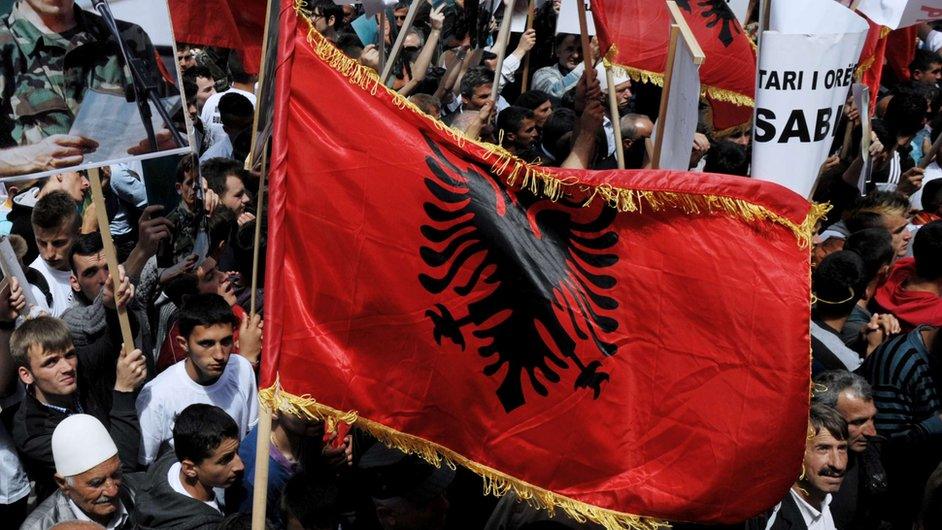
- Published28 June 2023
